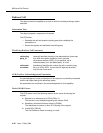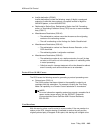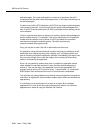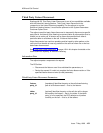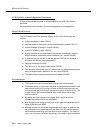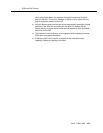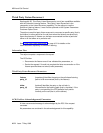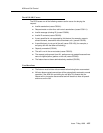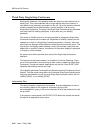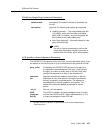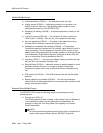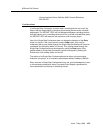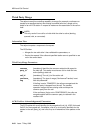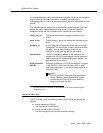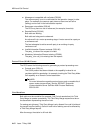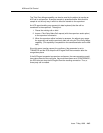
ASAI and Call Control
4-56 Issue 7 May 1998
Third Party Single-Step Conference
Starting with Release 6, this capability allows the adjunct to add a device into an
existing call. This is accomplished with a single request without the need for a
local device to be previously connected into the call. Up to the maximum allowed
number of parties (as per administration), can be added to a call by using
Single-Step Conference. The party to be Single-Step Conferenced may be added
as a listen-talk (full-visibility) participant, or as a listen only (no visibility),
participant.
The mixing of visibility options is not recommended for subsequent Single-Step
Conference requests into the same call. Regardless of visibility, displays are not
updated as a result of a Single-Step Conference operation. However, when one
party drops, the displays will be updated to reflect the actual remaining count. This
may result in the display update showing a count that includes a party that was
added with no visibility. However, the behavior of the station displays is expected
to change in a future release.
No system tones will be provided as a result of the Single-Step Conference
operation.
This feature may be used instead of, or in addition to Service Observing. There
are no tones provided on the call during or after a party is added via Single-Step
Conference. If tones are needed, applications may use the “Send DTMF” ASAI
capability after adding a device into a call.
This capability generates Connected Event Reports instead of Conferenced Event
Reports. Two new cause values within the Connected Event Report indicate that a
new party was added to the call by using Single-Step Conference either with full
visibility (CS3/9), or no visibility (CS3/8).
Information Flow
The adjunct expects a response to its requests. An acknowledgement is sent to
the controlling adjunct if the request is successful. As part of the
acknowledgement, a party_id list and an extension list of all the parties on the call,
are provided.
If the request is unsuccessful, the DEFINITY ECS denies the request and sends
the adjunct an appropriate cause value.



